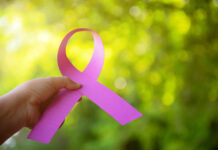Zuno General Insurance, formerly Edelweiss General Insurance and known for its modern, digital-first approach, has reported a substantial rise in typhoid and other vector-borne disease claims during the monsoon season from June to September. The data indicates a 37% increase in typhoid cases compared to the previous year, attributed largely to the prolonged monsoon this year. This uptick marks a departure from typical monsoon disease trends, which usually see viral infections as predominant, highlighting changing public health patterns in affected regions.
Alongside typhoid, the leading monsoon-related infectious diseases included acute gastroenteritis (AGE), viral fever, dengue, and pneumonia. Collectively, these diseases contributed to a 36% surge in health claims compared to last year, with vector-borne illnesses accounting for 24% of this increase
Regional variations were also noted, with Maharashtra, Uttar Pradesh, and Gujarat experiencing the highest number of claims for infectious diseases in FY25. This represents a shift from FY24, where Maharashtra, Gujarat, and Haryana were the most impacted regions.
As per the press release, treatment costs have also shown a slight change, with the average per-day claim expenses for viral illnesses rising by 2% over the previous year. This increase is largely due to the need for higher-grade medications, underscoring the intensive treatment often required during this period. The average hospital stay for these cases remained consistent at approximately 3.5 days, with claim amounts ranging from Rs 9,000 to a maximum of Rs 6.8 lakh.
Adults aged 31-45 years represented the most affected demographic, with a 43% increase in hospitalizations compared to last year. This age group’s heightened vulnerability reflects broader demographic patterns, with a balanced gender distribution of claims at 53% male and 47% female.
























